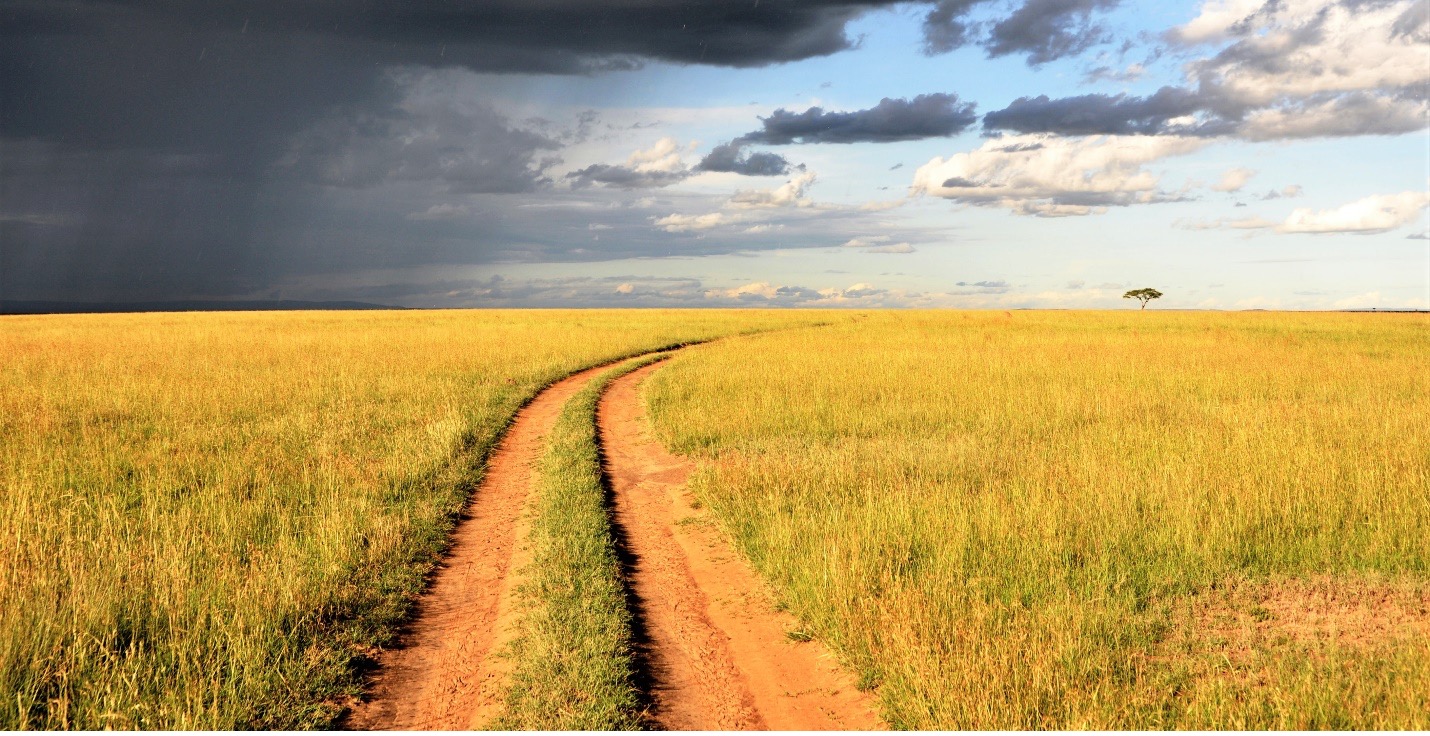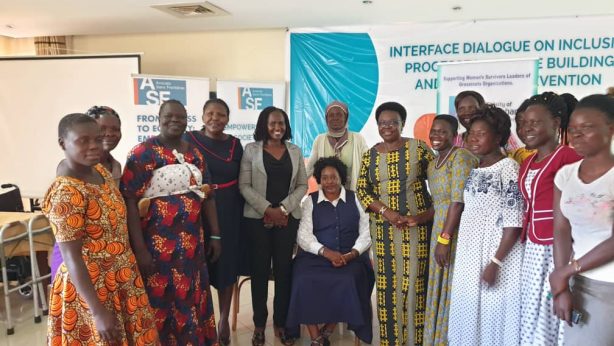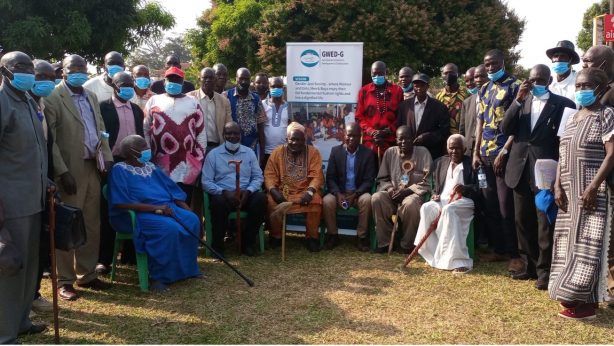Embrace responsible land investment in northern Uganda
In this last quarter, GWED-G under PELARD-N embarked on continued monitoring, documentation and reporting of land related human rights abuses and violations. Cases received includes: threatening violence and assaults on land rights defenders; land grabbing; boundary disputes; human – animal conflicts especially in Sub-Counties bordering the Murchison National Park.
Key in amongst the activities also included the convening of a Mobile Legal Aid Clinic aimed at addressing unresolved land disputes and mediations which were largely spear headed by land rights defenders. One of the most important activities was the convening of the district level protection working groups. The protection working group is a platform that brings together land rights defenders, local government leaders such as the offices of the Resident District Commissioner, District Police Commanders, Police Land Desk, the Chief Administrative Officers, District Community Development Officers and District Land Officers and civil society organisations working on land matters and human rights to discuss the future of land governance and safety and security of land rights defenders.
This briefer is a product of discussions that were documented from district protection working group meetings held in Amuru and Nwoya district in 2021. It also draws on a number of information and documented experiences from the work of our land rights defenders in these two action districts.
The briefer emphasizes that there is need to promote responsible land investment in northern Uganda in order to enhance sustainable development. In our work, responsible land investment is considered to be investment that does not abuse or violates human rights of individuals or groups and does not generate harm or violence; rather, an investment and land use that benefits the community and does not completely deprive the locals of their land rights. The briefer presents a limited contextual analysis of the situation of northern Uganda and provides critical guidelines that can be adopted to enhance and promote responsible land investment for development in northern Uganda.
Despite the outbreak of Covid-19, northern Uganda continues to experience relative peace. Most of the people are largely dependent on subsistence agriculture which makes land a critical resource. The region is currently known for attracting a number of investors and investment opportunities, some of which are said to have resulted into deeply rooted land conflicts. Regarded as highly a patriarchal society, harmful gender norms continue to limit women and girl’s access to education and other empowerment opportunities – including access, control and land ownership, and political participation. Our community action groups and land rights defenders also acknowledge that gender based violence is prevalent, particularly domestic violence which includes intimate partner violence, and child early and forced marriages.
 Photo taken during a field visit by the Program Officer.
Photo taken during a field visit by the Program Officer.
Our work on land governance that aims at Protecting and Empowering Land Rights Defenders in northern Uganda (PELARD-N) remains critical in providing us with the spaces to understand dynamics involving land use and land conflicts in northern Uganda. During our land rights protection working group meetings in Gulu, Nwoya, Amuru and Lamwo, it was indicated that there is increasing land investment undertaking in northern Uganda. However, it was noted that some investments have become key conflict drivers as some have resulted into human rights abuses such as forced evictions/displacement, land grabbing, and inappropriate land acquisition without adequate compensation, illegal arrests and detention, injuries and death as in the case of Apaa. This specific briefer therefore provides alternatives to enhancing land investment without causing harm or abuse to human rights and land rights of the indigenous people in northern Uganda.
To enhance individual and group land rights, we recommend that businesses and or investments must act with due diligence to avoid infringing on the human rights and legitimate tenure rights. This should include investors identifying who will be affected by an investment on land in order to avoid infringing on human rights. Communities and individuals must be consulted and provided with information on project matters that directly and indirectly affects them. Particular attention must be given to ensure the inclusion of groups vulnerable to exclusion, such as women, youth, elderly, ethnic and religious minorities, indigenous people and pastoralists where necessary.
It is also important that all responsible investments in land must recognize and respect land rights. This is because most of land tenure system in Acholi sub-region is customary and hence any land acquisition should follow legitimate processes. Legitimate land tenure rights include the rights of people (as individuals and groups) to occupy, use, access, control, and transfer land. These rights may be derived from and recognized by formal and/or customary law. Individuals and groups interested in investing in land should be able to conduct thorough review of land rights and owners from the government and the community. This can be done through conducting community-led and participatory land rights mapping. This is because land rights in most parts of northern Uganda are informal and undocumented. It is therefore, important to utilize a combination of approaches to ensure all land rights are fully captured. Companies also need to know that women’s land uses may be difficult to see because they are often unacknowledged within communities and households. A consideration of such user rights may avoid conflict and resistance.
Interactions with the community indicates that, in some cases, they are never consulted in the processes of acquisition of land for development or investment. “To us, we just hear so and so or the government has acquired land for farming. When you probe further, you will find that the people have not been involved or even aware”, narrates a community member during our monitoring visit in Amuru. We therefore recommend that all parties interested in acquiring land for investment must observe the Free Prior Informed Consent principles (FPIC). The principles of FPIC seek to ensure that indigenous peoples are adequately informed, properly consulted, and given the opportunity to fully participate in negotiations with companies and the government before they consent to a project that affects their land rights and uses. Women and other less powerful or seen members should be given the opportunity to consent as well.
The Government of Uganda must ensure the effective implementation of laws, policies, and administrative instruments in place to ensure that land valuation and compensation processes provide for full, fair, and timely compensation to communities and individuals. International best practices call for the valuation of all market and non-market interests and rights in the land, including those associated with livelihoods and social, cultural, religious, spiritual, and environmental values. That is to say, to comply with international human rights requirements, valuation and compensation should be sufficient to restore or improve livelihoods. Valuation must also consider non-market values and adequately involve all affected parties, including women and other groups vulnerable to exclusion.
Conclusively, we recommend that it is critical for the government of Uganda, companies and individuals that invest in land to establish a grievance mechanism to receive and resolve any complaints that might arise over the life-cycle of an investment. This is because it is inevitable that complaints will arise, as matters regarding land and natural resources tend to be emotive in nature, and often reveal or deepen tensions within communities and between communities and investments. We strongly believe that grievance mechanisms will provide a means for monitoring compliance with the terms of the investment and provides a consistent means of communication between the state, companies/investments and communities, which can help to improve relations and sustain social license.




Very inviting findings